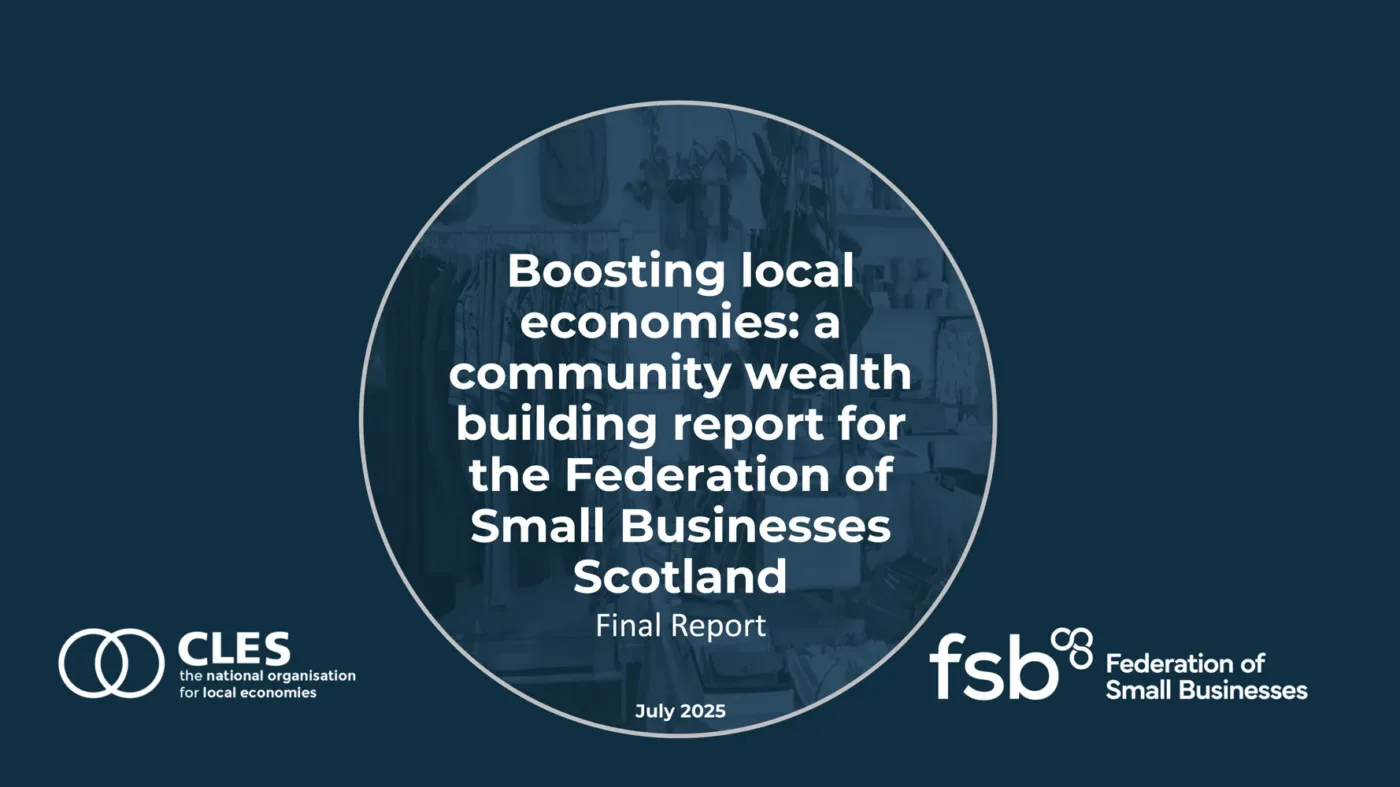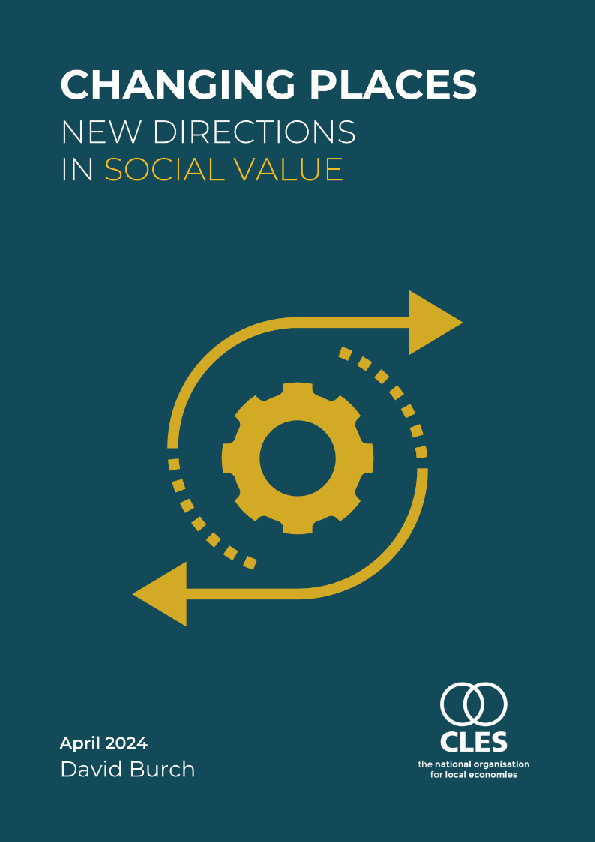Scottish policy and practice update: Sept 2025
This update is part of a regular series of rundowns of policy developments and reports on our work in Scotland, by CLES Head of Scotland, Naomi Mason.
More than “just” action plans
A few weeks ago, I was chatting to someone about CLES, our work in Scotland and our expertise in community wealth building. They made a comment about us “just” designing action plans for local authorities. I explained we did a lot more. Afterwards I paused to reflect, if they don’t know what we do, perhaps it’s time to explain? So, this blog is a little different, not so much Scotland focused, but CLES focused. If you’ve ever thought, “what do they do at CLES?”, then this blog is for you.
















